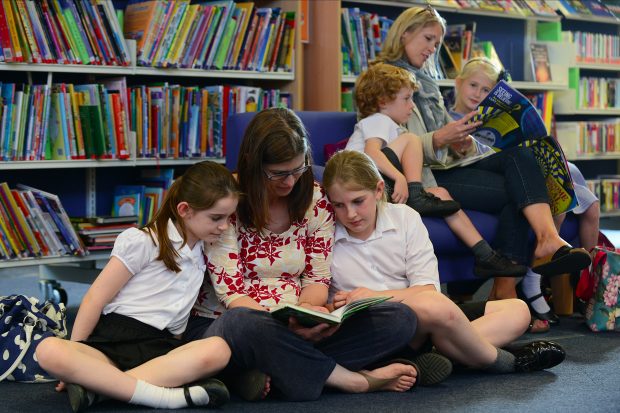
[Editors note: this guest blog post was written by James Bowen, Director of NAHT Edge (a union for school leaders)]
Learning to read is one of the fundamentals of primary school life. Learning to love reading is quite another matter but no less important.
A desire to turn the page and find out what happens next, whether in fiction or factual books, is just as vital as the skill of decoding new words and building your vocabulary. Reading isn’t just a skill to be mastered so your teacher can tick a box in an end of term test, it’s the key to the door that leads to equality, to opportunity and to, well, a happier life.
Teachers often worry that some children will only read the minimum asked of them. Or that when they get home, a book is the last object a child will pick up. If a child lives in a home where books aren't plentiful and reading is not the norm, they are already at a major disadvantage.
That’s why we should never forget that every book in the world is available for free, if you can find the time, from your nearest library. If you’re a child, your nearest library may well be at school, but if there isn’t a library at school, there’ll certainly be one near where you live. Closing libraries in the name of efficiency or modernisation is a false economy.
Libraries can be a godsend for children who don't have access to many books at home. The statistics on this are quite shocking, with three in ten children living in homes with nothing to read.
Even if there isn’t so much as a cookery book in the house, a school visit to the library can open up a child’s eyes to the array of books on offer. It is up to schools and libraries to create a 'Matilda Effect’, inspiring young people to pick up a book for the first time.
Schools and libraries
The relationship between a school and its local library should be a strong one, with visits in both directions. Let me tell you about one particular relationship I’ve heard of recently. There is a library in Hampshire that’s been threatened with closure for some time. The local school has played a really key role in supporting the campaign to keep it open, as they value it so much.
The librarians come to all the school open evenings and have their own stand so that they can meet with parents and talk about the services they offer. They also take a turn at school assemblies talking about books relevant to a topic being taught in the school. The relationship is very much a two-way thing. At the start of each school year, the teachers walk their new Reception children to the library, to show them where it is, what they can do there and encourage them to join. The library displays work that the school children have done in school in the library itself, which has become a brilliant way to keep the school and the library at the heart of the community.
Almost as much fun as taking a book out is the act of bringing it back and searching for another. Reading together, either in the library or in class, ought to provoke conversation and comparison amongst young readers. Libraries offer local expertise for schools and teachers to tap into. They can help schools stay up to speed with the latest children's fiction and books, especially good if you don't have a dedicated librarian in school (which is increasingly difficult with tight budgets). Librarians can also support parents subtly in choosing appropriate books that might appeal and give advice on how to engage on reading with children. Useful for those parents who can't or won't go into school.

Schools put every effort they can into instilling a love of reading. I’m happy to say that the notion of what you ‘ought to be reading’ has been banished to the history books. Graphic novels have powerful stories within them with narratives leaping about all over the page, and its much easier these days to find stories for children written by famous sporting stars or celebrities whose name or face might be just the incentive needed to get beyond the front cover.
The importance of storytelling
I support the idea, proposed by Michael Morpurgo recently, of time set aside for storytelling and reading during each school day. Russell Hobby, NAHT’s general secretary, has also written powerfully about allowing every pupil from the ages of seven to eleven the time to read, just for pleasure. He says that even teachers could settle down alongside them and read too. It would be a peaceful time and an immensely productive one. Ironically, this would lift standards far more than frantic coaching to the test.
My feeling is that society has a duty to make books accessible to all children. Today, there are more ways than ever to purchase a book but that takes resources not every family has in abundance. When children are surrounded by adults who love books, the chances are that they will develop a love of their own. Schools and libraries make that possible without a penny ever changing hands.
To keep up to date with James' views follow him on twitter, or for news from the organisation follow @NAHTedge.
---------------------------------------------------
Please note, this is a guest blog. Views expressed here do not necessarily represent the views of DCMS or the Libraries Taskforce
1 comment
Comment by Hampshire Library Service posted on
The library in Hampshire mentioned in this article does not refer to one of the Hampshire County Council public libraries, James is referring to a school library although he does not say which Hampshire school.